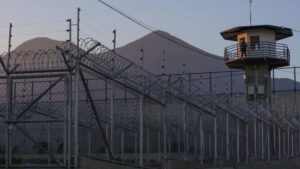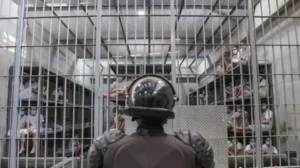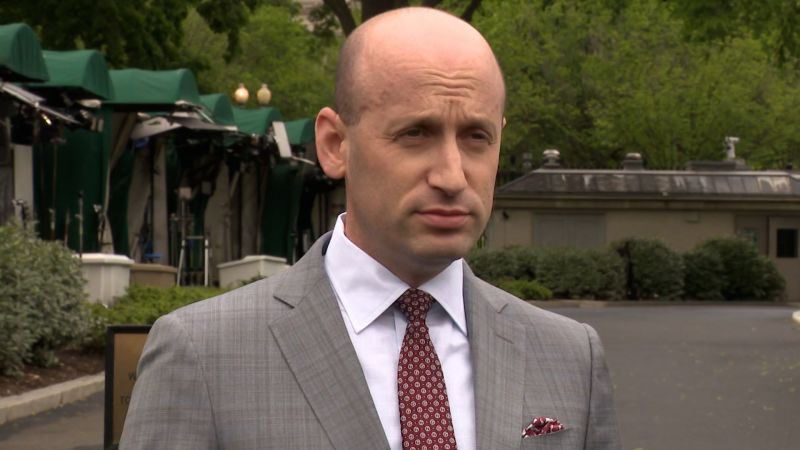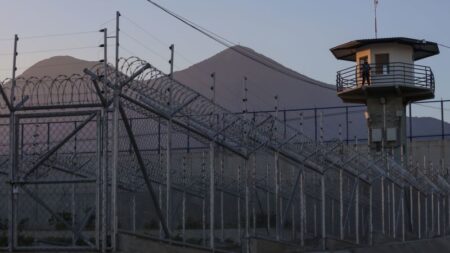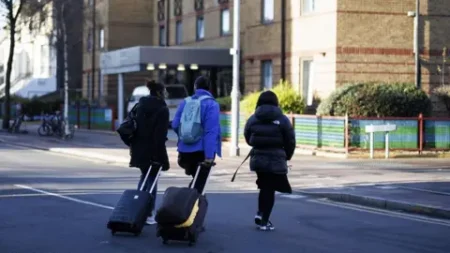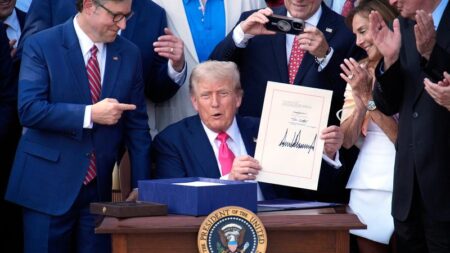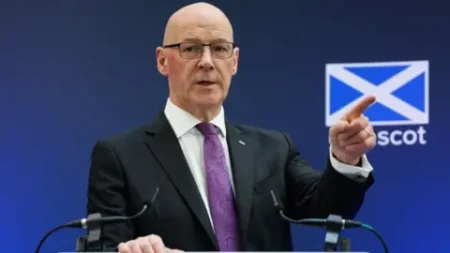In a recent federal court session, the topic of student visas sparked significant discussion, particularly concerning the protocols used by the U.S. State Department in regards to non-citizen students. The State Department reported that it had engaged in over a dozen meetings involving the White House, specifically mentioning Stephen Miller, who served as President Donald Trump’s deputy chief of staff. This revelation was made by a high-ranking official from the State Department during a court proceeding, illustrating the intricate coordination between various branches of the government on matters of immigration and academic freedoms.
Interestingly, the White House has chosen to remain silent on these meetings and discussions, leaving many to speculate about the implications and motivations behind these gatherings. The proceedings centered around John Armstrong, a senior official in the Bureau of Consular Affairs, who testified about the application of broad definitions of antisemitism to examine the activities and speech of non-citizen students and professors. This testimony occurred in the context of a broader trial involving university professors who argue that the administration’s actions aimed at deporting individuals for their anti-Israel sentiments are intended to restrict political expression, which is constitutionally protected.
Armstrong’s testimony highlighted how the State Department has pursued actions to revoke visas from certain students and educators as part of its ongoing efforts to address perceived antisemitic activities. The criteria for what constitutes antisemitism were described in such broad terms that they encompass a range of opinions, including criticisms of the Israeli government and support for specific foreign policy measures, such as arms embargoes or halting military assistance to Israel. Armstrong made a pointed observation regarding the seriousness of this issue, linking the potential consequences of improper decisions to historical crises, emphasizing, “If we get this stuff wrong, we get 9/11. This is very serious stuff.”
The procedural aspects of how the State Department collaborates with the Department of Homeland Security (DHS) were also addressed. In prior testimonies, Homeland Security agents explained that a referral system was established, allowing the State Department to flag non-citizens for potential investigation by DHS. This agency would then assess the validity of those flags and report back to the State Department regarding whether there was sufficient evidence to uphold a visa revocation. Armstrong’s testimony reinforced concerns about the legal ramifications of the orders to revoke visas, as these decisions were intricately linked to the speech of the affected individuals.
A particularly poignant case discussed during the trial involved Rümeysa Öztürk, a doctoral student at Tufts University. Armstrong revealed that he himself had signed the memo for her removal order. Following the issuance of this order, Öztürk faced severe consequences, including detention by a plainclothes officer in her neighborhood. The factors leading to her visa revocation included her participation in anti-Israel protests, an op-ed she co-authored, and her tenuous affiliation with a pro-Palestinian student organization. Armstrong’s account underlined the chilling effects that governmental actions could have on academic freedom and freedom of speech.
The presiding federal judge, William Young, expressed his opinion regarding the First Amendment’s applicability to non-citizens, suggesting that non-citizens may indeed possess similar rights to those of citizens, especially when it concerns free speech. He articulated his belief that lawful non-citizens hold rights that necessitate protection, thereby affirming the importance of robust free speech protections within the American legal framework.
As the trial nears its conclusion, with closing arguments set to begin shortly, the implications of these proceedings extend beyond individual cases, raising essential questions about freedom of expression, government authority, and the intersection between immigration policy and civil liberties in the United States. The resolution of these complex issues will likely have lasting effects on future engagements between academic institutions and governmental bodies where speech and political advocacy are concerned.


